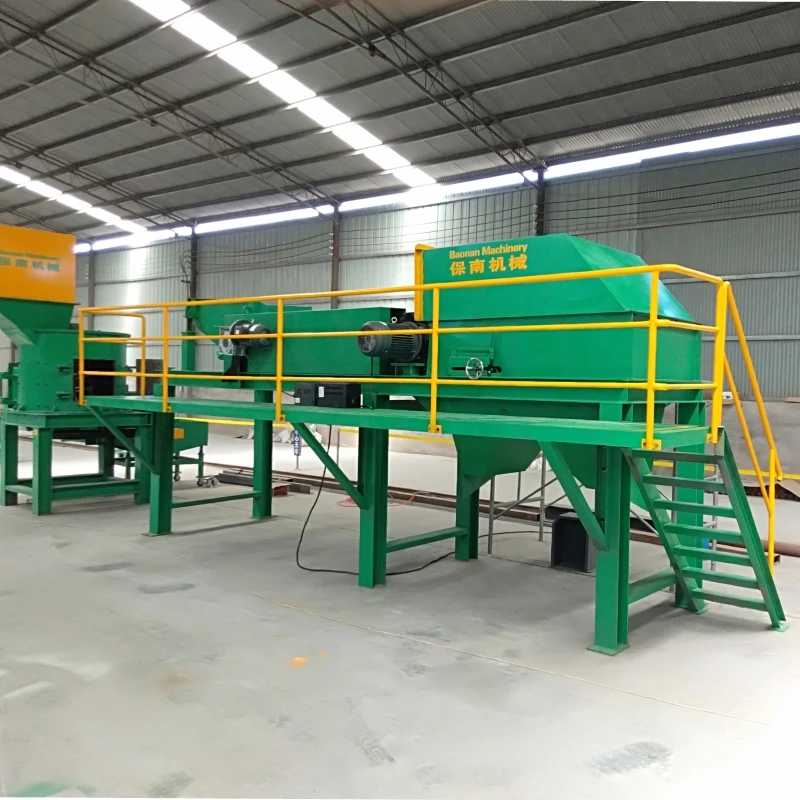

නොවැ. . 11, 2024 00:26 Back to list
How to Recycle Computer Boards A Comprehensive Guide
In today's digital age, electronic waste, especially from devices like computers, poses a significant environmental challenge. One of the most critical components of a computer is its printed circuit board (PCB), which houses numerous electronic components and facilitates the functioning of the device. Recycling computer boards not only helps reduce waste but also conserves valuable resources. This article will guide you through the reasons for recycling computer boards and the steps to do so effectively.
Why Recycle Computer Boards?
1. Environmental Impact Electronic waste is known to contain harmful substances, including heavy metals like lead, mercury, and cadmium. When disposed of improperly, these toxins can leach into the soil and water, leading to environmental pollution. Recycling helps mitigate this risk.
2. Resource Conservation Computer boards contain precious metals such as gold, silver, palladium, and copper. By recycling these materials, we can conserve natural resources, reduce the need for mining, and lower energy consumption associated with the extraction of virgin materials.
3. Economic Benefits The recycling industry contributes to the economy by creating jobs and generating revenue. By recycling computer boards, we create a sustainable loop of manufacturing that benefits both the economy and the environment.
Steps to Recycle Computer Boards
1. Identify Recycling Centers Start by locating a certified e-waste recycling facility in your area. Many municipalities have designated drop-off locations, and several private companies specialize in electronic recycling. Ensure that the facility follows environmentally responsible practices and is certified by relevant authorities.

2. Prepare the Computer for Recycling - Back-Up Data Before recycling, back up any important data stored on the computer. This is crucial as recycling processes usually involve destroying the hard drive. - Remove Personal Information Wipe the hard drive clean to protect your personal information. Use data destruction software or physically remove and destroy the hard drive if necessary. - Disassemble the Computer (Optional) If you're comfortable, you can disassemble the computer to remove the PCB. Use appropriate tools and take safety precautions. However, this step may not be necessary if you prefer to turn in the entire unit.
3. Transport Safely When transporting your computer or its parts to a recycling facility, ensure they are securely packed to prevent damage. Handle components carefully, especially glass and circuit boards, which can break and release hazardous materials.
4. Participate in E-Waste Collection Events Many communities organize e-waste collection events, where you can drop off your outdated electronics for recycling free of charge. Check local listings for upcoming events, and consider spreading the word to friends and family.
5. Consider Donation If your computer is still functional, consider donating it to local schools, non-profits, or charitable organizations. This extends the life of the equipment and can benefit those in need. Make sure to erase personal data before donating.
6. Stay Informed Keep abreast of local regulations regarding e-waste recycling. Laws may vary by state or country, and being informed will help ensure that you are responsibly recycling your electronics.
Conclusion
Recycling computer boards is a vital step towards reducing electronic waste and protecting our environment. By properly recycling these components, individuals and businesses can contribute to a more sustainable future. Not only does recycling help conserve resources and reduce pollution, but it also fosters a circular economy that benefits society at large. By following the steps outlined in this guide, you can make a positive impact and encourage others to consider the importance of responsible electronic waste management. As technology continues to advance and devices become obsolete, our responsibility to recycle and protect the environment becomes even more critical.
Latest news
Troubleshooting Common Eddy Separator Problems
NewsJul.04,2025
The Role of Metal Recycling Plants in Circular Economy
NewsJul.04,2025
The Impact of Recycling Line Pickers on Waste Management Costs
NewsJul.04,2025
Safety Features Every Metal Shredder Should Have
NewsJul.04,2025
How Industrial Shredders Improve Waste Management Systems
NewsJul.04,2025
How Cable Granulators Contribute to Sustainable Recycling
NewsJul.04,2025